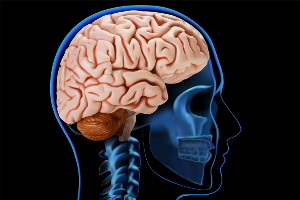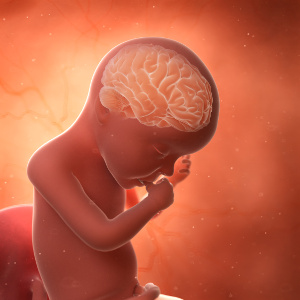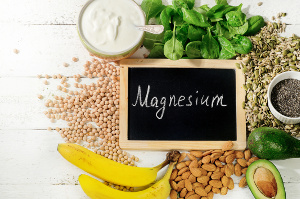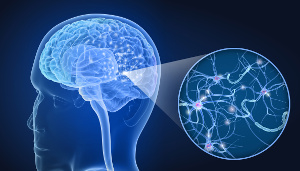Vitamin D supplements can prevent stroke and speed up rehabilitation
 Lack of vitamin D is a global health problem that increases mortality rates. At this point, many studies have shown that having adequate amounts of vitamin D in the blood can lower your risk of cardiovascular disease, which is the leading cause of death. In a new review article that is published in Nutrients, the authors look closer at vitamin D supplementation to see if it can prevent stroke and speed up rehabilitation. It is essential that vitamin D supplements have good bioavailability so they can optimize blood levels of the nutrient.
Lack of vitamin D is a global health problem that increases mortality rates. At this point, many studies have shown that having adequate amounts of vitamin D in the blood can lower your risk of cardiovascular disease, which is the leading cause of death. In a new review article that is published in Nutrients, the authors look closer at vitamin D supplementation to see if it can prevent stroke and speed up rehabilitation. It is essential that vitamin D supplements have good bioavailability so they can optimize blood levels of the nutrient.
Read more about how vitamin D can prevent stroke and speed up recovery
- Created on .












 Many people suffer from chronic inflammation, which sets the stage for a host of diseases such as asthma, type 2 diabetes, atherosclerosis, depression, cancer, rheumatoid arthritis, and other autoimmune diseases. The presence of chronic inflammation may also make infections such as coronavirus and influenza potentially life-threatening by derailing the immune defense. According to a new study from the University of South Australia that is published in International Journal of Epidemiology, it appears that
Many people suffer from chronic inflammation, which sets the stage for a host of diseases such as asthma, type 2 diabetes, atherosclerosis, depression, cancer, rheumatoid arthritis, and other autoimmune diseases. The presence of chronic inflammation may also make infections such as coronavirus and influenza potentially life-threatening by derailing the immune defense. According to a new study from the University of South Australia that is published in International Journal of Epidemiology, it appears that 


 Several studies have revealed that
Several studies have revealed that  Poor wound healing, a somewhat common and well-known problem, especially among hospital patients, is associated with huge health costs. Proper wound healing is contingent upon on the presence of different nutrients, and it appears that the ratio between
Poor wound healing, a somewhat common and well-known problem, especially among hospital patients, is associated with huge health costs. Proper wound healing is contingent upon on the presence of different nutrients, and it appears that the ratio between  The ageing process and most chronic diseases like diabetes, cardiovascular disease, and cancer involve chronic inflammation that has the potential to damage healthy tissue. If acute hyperinflammation occurs, for example in connection with virus infections like influenza and COVID-19, the condition may become potentially life-threatening. It is therefore vital that the body can control the different inflammatory processes. One of the things that is needed for this is
The ageing process and most chronic diseases like diabetes, cardiovascular disease, and cancer involve chronic inflammation that has the potential to damage healthy tissue. If acute hyperinflammation occurs, for example in connection with virus infections like influenza and COVID-19, the condition may become potentially life-threatening. It is therefore vital that the body can control the different inflammatory processes. One of the things that is needed for this is  Dementia is on the rise across the globe but according to a study from University of South Australia,
Dementia is on the rise across the globe but according to a study from University of South Australia,  During pregnancy, the unborn child needs different nutrients for proper development of its brain and nervous system. Even if the mother eats a balanced diet, it can be difficult to get enough
During pregnancy, the unborn child needs different nutrients for proper development of its brain and nervous system. Even if the mother eats a balanced diet, it can be difficult to get enough  It’s commonly known that physical activity boosts the brain’s ability to form new brain cells – or neurons. Still, the underlying mechanisms have been a mystery to science. A team of Australian scientists, however, has recently discovered that, during exercise, mice produce a selenium-containing protein that helps the brain synthesize new brain cells. The scientists consider this to be a rather fantastic study, and it is assumed that
It’s commonly known that physical activity boosts the brain’s ability to form new brain cells – or neurons. Still, the underlying mechanisms have been a mystery to science. A team of Australian scientists, however, has recently discovered that, during exercise, mice produce a selenium-containing protein that helps the brain synthesize new brain cells. The scientists consider this to be a rather fantastic study, and it is assumed that  "After about one week of taking the Q10 supplement I could feel a huge difference," says 23-year old Alan Piccini, who has been suffering from extreme fatigue and muscle aches ever since he was a child.
"After about one week of taking the Q10 supplement I could feel a huge difference," says 23-year old Alan Piccini, who has been suffering from extreme fatigue and muscle aches ever since he was a child. “Taking capsules with co-enzyme Q10 has freed me of the severe side effects of my cholesterol lowering medicine,” Mrs Franken explains.
“Taking capsules with co-enzyme Q10 has freed me of the severe side effects of my cholesterol lowering medicine,” Mrs Franken explains.